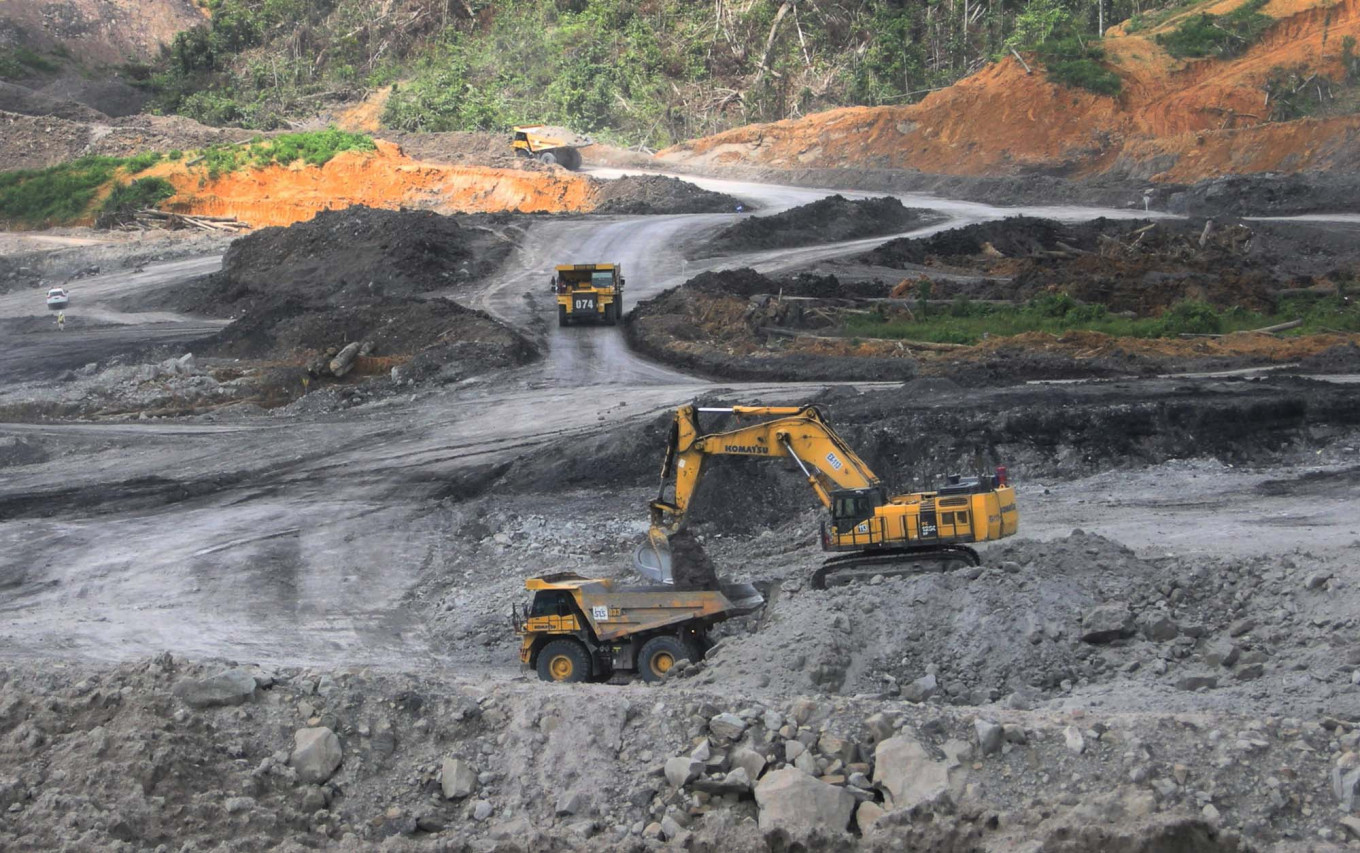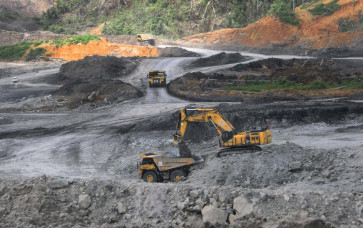Popular Reads
Top Results
Can't find what you're looking for?
View all search resultsPopular Reads
Top Results
Can't find what you're looking for?
View all search resultsAnalysis: PLN pushes for an entity to collect coal levies as supply recedes
Coal-supply crisis looms over the state-owned electricity company (PLN) again as businesses prefer to export their coal than to meet their domestic market obligation (DMO) amid skyrocketing commodity prices.
Change text size
Gift Premium Articles
to Anyone
C
oal-supply crisis looms over the state-owned electricity company (PLN) again as businesses prefer to export their coal than to meet their domestic market obligation (DMO) amid skyrocketing commodity prices. The company is pushing for the establishment of a public service body (BLU) to collect coal levies that will help them secure coal supply.
The Energy and Mineral Resources (ESDM) Ministry Decree No. 139/2021 requires coal producers to allocate a minimum of 25 percent of their annual-production target for domestic use, priced at a maximum of US$70 per metric ton for coal used to produce electricity for the public. For those who fail to meet their obligation, they will have to pay fines and compensations according to the ESDM Ministerial Decree No. 13/2022.
However, coal price hit a record high this year, hovering around $400 per t for the past few months, which is over five times the DMO price. Therefore, due to the stark-price difference, coal producers prefer to pay the fines and compensation rather than not exporting.
This profit-seeking action had led PLN to suffer critically low coal-supply levels early this year, putting 10 million households and businesses across Java and Bali at risk of blackout. The company suffered a deficit of 6.1 million t of coal in January, 5.1 t of which should have been fulfilled by the DMO.
Due to the direness of the situation, the government threw down a coal-export ban that sent shockwave across the global supply chain. After securing domestic supply, added with pressures from its major coal-trading partners, the government lifted the ban after a month. (Read: RI gradually relaxes coal export ban after securing domestic supply)
PLN believes that an entity that collects coal levies would give more incentives for coal producers to comply with the DMO policy, therefore helping them to secure coal supply. The levies will cover the difference between DMO prices, which are $70 per t for electricity and $90 per t for cement and fertilizers, and market prices.
ESDM Minister Arifin Tasrif said the government is still discussing over the legal status of the entity. "The initiative has not received approval at this time because there is still a debate over the legal basis, [whether it will be] in the form of a Government Regulation or Presidential Regulation," he said on Tuesday in a working meeting with House of Representatives Commission VII, which oversees energy and mining resources.


















